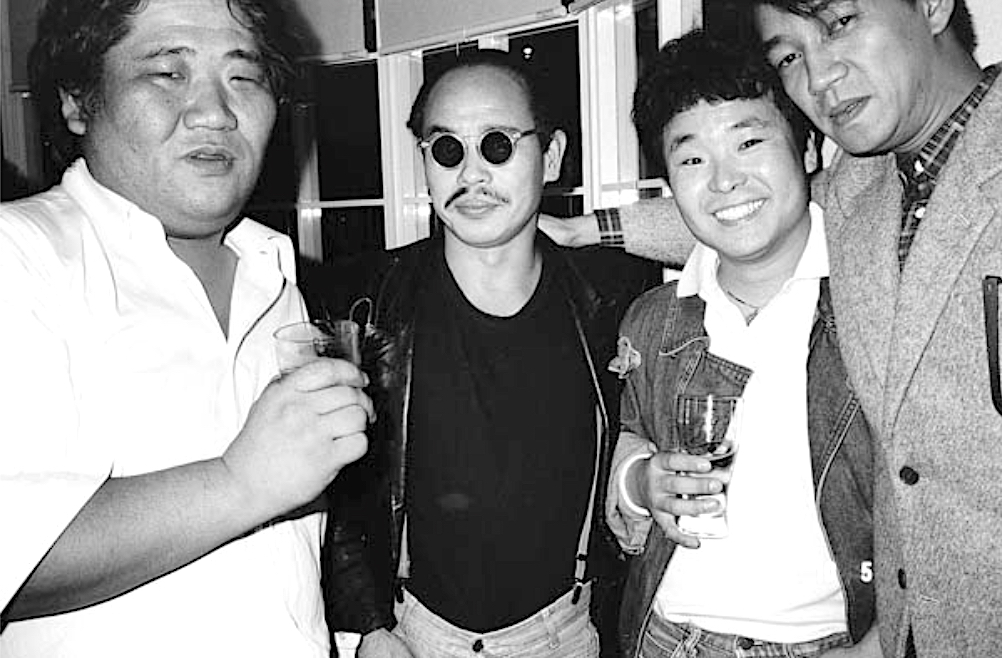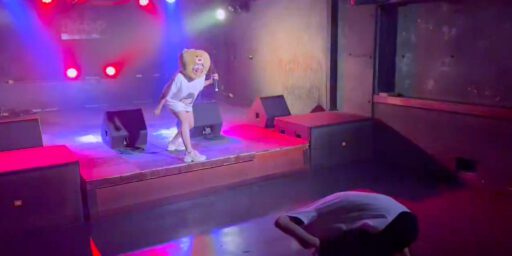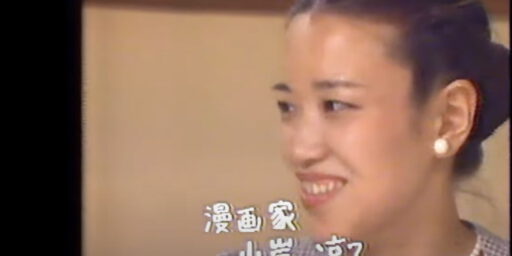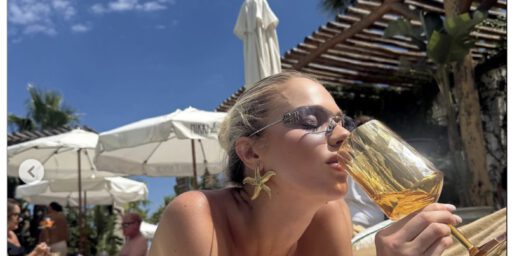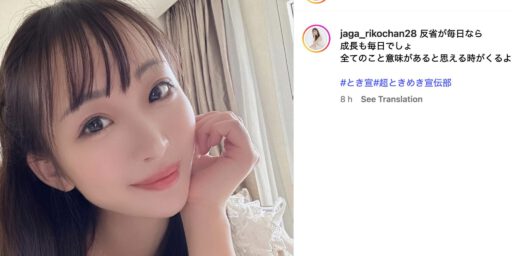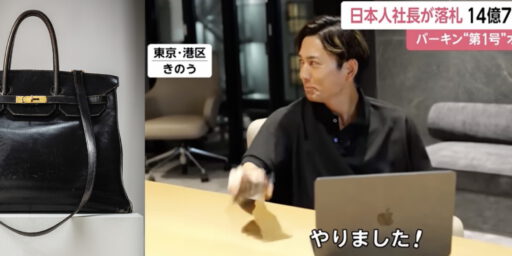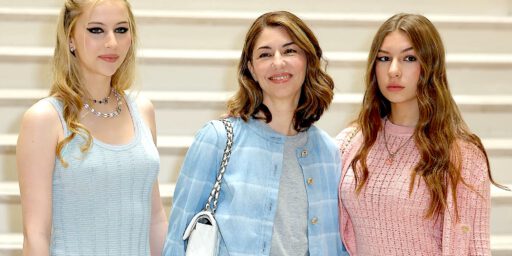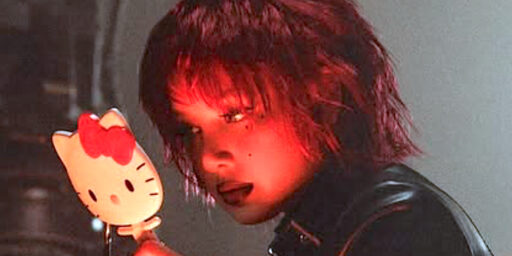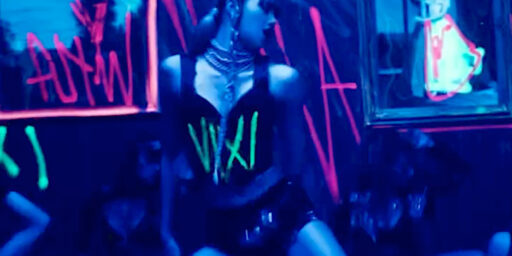坂本龍一 R.I.P. SAKAMOTO Ryuichi R.I.P.
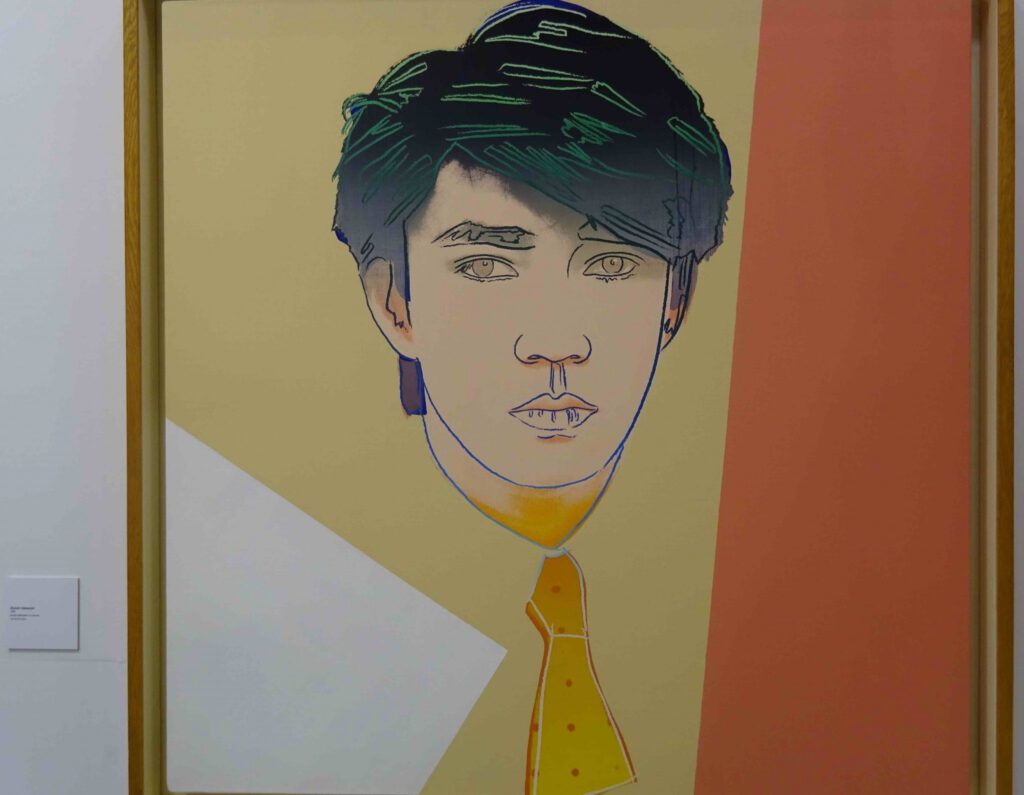
Very sad news.
Legendary Japanese musician and composer, SAKAMOTO Ryuichi 坂本 龍一, had been fighting several cancers since 2014 and together with Covid-19 circumstances, his health situation became grave. Being the classy and courageous human that he was, he had continued to be upbeat and made music as long as his strength allowed.
It seems, his last work was “Ryuichi Sakamoto: Playing the Piano 2022”, a live streaming event that took place on Dec. 11, 2022. He said he’s too weak now for a full concert, so he continued recording when he felt up to it. Streaming these kind of events allowed him to create something that still felt like a concert.
Please enjoy Sakamoto’s moving solo piano rendition of “Merry Christmas, Mr. Lawrence”.
Merry Christmas Mr. Lawrence / Ryuichi Sakamoto – From Ryuichi Sakamoto: Playing the Piano 2022
Let me quote his sentences:
“If you mean sounds that aren’t in the album, I have to say the sound of rain.
Also, when it’s a windy day, my collection of wind chimes, bells, and pieces of pottery that are hanging by my windowsill ring out and that makes me happy.”
“Deconstructing the past, and the present, in order to lead us into the future with a greater scope”.
His death on March 28th had been made public 2 hours ago.
SAKAMOTO Ryuichi, resta in pace.
坂本龍一が語る忌野清志郎 君が僕を知ってる
Ryu’s Bar 坂本龍一 skmt
僕らの音楽 #065/坂本龍一・常磐貴子
【80s】 懐い音楽 い・け・な・いルージュマジック ザ・トップテン Ver.
音楽家 坂本龍一さん死去 71歳 YMOなどで世界的に活躍
2023年4月2日 23時22分 訃報
https://www3.nhk.or.jp/news/html/20230402/k10014027241000.html
坂本龍一さかもとりゅういち
音楽家
1952年生まれ、東京都出身。78年「千のナイフ」でソロデビュー。同年「YELLOW MAGIC ORCHESTRA (YMO)」を結成。散開後も多方面で活躍。自らも出演した映画『戦場のメリークリスマス』で英国アカデミー賞を、映画『ラストエンペラー』の音楽ではアカデミーオリジナル音楽作曲賞、グラミー賞、他を受賞。ほかにも、海外映画『シェルタリング・スカイ』、『スネーク・アイズ』や、『母と暮せば』『怒り』など日本映画の音楽を数多く担当。環境・原発問題などにも積極的に取り組んでいる。NHKでは、『爆笑問題のニッポンの教養』『スコラ 坂本龍一 音楽の学校』ほかに出演している。
https://www2.nhk.or.jp/archives/articles/?id=D0009071156_00000
YMO
https://www2.nhk.or.jp/archives/movies/?id=D0009040599_00000
The Guardian: Ryuichi Sakamoto: the avantgardist who became a groundbreaking pop star
With Yellow Magic Orchestra, he paved the way for electropop and hip-hop but was far happier as a backroom boffin than an electronic pinup
Ryuichi Sakamoto dies aged 71
Alexis Petridis, Sun 2 Apr 2023 15.04 BST
https://www.theguardian.com/music/2023/apr/02/ryuichi-sakamoto-the-avant-gardist-who-became-a-groundbreaking-pop-star
Filmkomponist und Techno-Urvater Ryuichi Sakamoto ist tot
Lars Nicolaysen, Berliner-Zeitung
Viele kennen seine Oscar-gekrönte Filmmusik. Er war ein Urvater des Techno, spielte aber auch Jazz und Pop. Das Genie hinterlässt ein künstlerisches Universum.
02.04.2023

Der große japanische Filmkomponist, Musiker, Schauspieler und Produzent Ryuichi Sakamoto („Der letzte Kaiser“) ist tot. Sakamoto, der einst an der Seite von David Bowie in dem Kriegsfilm „Merry Christmas, Mr. Lawrence“ (1983) mitspielte, starb nach langem Krebsleiden bereits am vergangenen Dienstag, wie sein Büro am Sonntag bekanntgab. Das Musikgenie wurde 71 Jahre alt.
Auch wenn im Westen seine Musik bekannter als sein Name sein mochte, so war er doch jahrzehntelang nicht nur enorm respektiert, sondern hat auch viele Künstler höchst inspiriert. Angefangen mit seiner Arbeit in den 70er und 80er Jahren als Bandleader des Yellow Magic Orchestra, das einst mit der deutschen Band Kraftwerk zu den „Kings of Techno“ gezählt wurde, bis hin zu seinen zutiefst emotionalen, Grammy- und Oscar-prämierten Filmmusiken sowie seinen zahlreichen elektronischen Solo-Experimenten.
Sakamoto jagte überall auf der Erde der Musik hinterher
„Ich bin ein Jäger“, sagte Ryuichi Sakamoto einmal der Deutschen Presse-Agentur in New York, wo er viele Jahre lebte. „Ich jage der Musik nach, überall auf der Erde.“ Ob Pop, Rock, Ambient, Techno oder Jazz, ob afrikanische Trommelrhythmen, asiatische Volkslieder oder Melodien deutscher Klassiker – der geniale Musiker zeigte in seinen Werken, mit denen er über Jahrzehnte hinweg Musikgeschichte schrieb, immer wieder neue künstlerische Facetten auf.
坂本龍一に憧れて新宿高校に入った。後に娘が入学したときPTAで広報誌を作っていたのだが、その時に過去、卒業生インタビュー企画で教授を取り上げていたことを知った。インタビュアーはPTAの人で、高校時代について一番掘り下げてる記事だと思う。
——
―新宿高校と聞いて最初に思い出すのは?
昔の古い校舎ですね、もう跡形もないんでしょうねえ。何とかの鐘ってのがあって、鐘の塔が残っていましたね。そう、戦艦三笠の鐘でしたね。六中健児の歌なんてのもあって、戦前の。質実剛健な校風で、また校舎もその校風に合わせたかのような校舎でした。
―「六中健児の歌」は今も健在です。当時の新宿高校はまだ軍国主義の名残を残したイメージだったのでは。
軍国主義は勿論嫌いだけれど、質実剛健の気風には好感を持っていましたね。僕らが祖父の世代から聞いていた戦前の旧制高校を思わせるような雰囲気とか、本当にまるで戦前の旧制高校のような格好の先輩もいて、まあ袴は履いてませんけれどボロ雑巾のような手拭いを腰に下げて、下駄で通っているような先輩も当時はいましたよ。
―今でも校則の中に「下駄履き」禁止という一文が残っています。
今でもあるの!?(笑)残っているわけだ。まあ、いまどきの子供は履かないでしょうけどね。
―六中健児の歌の話が先程出ましたが覚えてますか?
全然覚えてない。
―新宿体操は?
そういうのがあったことは覚えているけれど、僕は団体行動が嫌いでね。今でも嫌いだけど、そういうのはなるべくこっそり抜け出していましたからね。新宿体操ってのは今でもあるわけ?
ーー〜ー〜〜ー
―当時の新宿生の生活を。
さすがに一年坊主の時はちゃんと学校へ通っていましたが、二年生になると世の中が騒がしくなりまして(注8)。日本で一番騒がしいのは新宿ですから、やっぱり外がワサワサしているので僕らの気持ちもワサワサしていてですね。あと新宿には悪い魅力が沢山ある(笑)。ま、魅力的なものというのは悪いものですから、そういうものが街に沢山近くにあるってことでどうしても足が外に向いてしまうんですね。学校の外に。だからしょっちゅう抜け出しては喫茶店に行ったり、ジャズを聴きに行ったり、映画を見に行ったり、いろんなことしてました。人生で一番忙しかったですね。三年生になると、朝に家を出て京王線に乗って新宿まで着くとですね、まず喫茶店に行っちゃう(笑)、学校には行かないで。「ウィーン」ていう中央通りにある小さい喫茶店で、今はもうなくなっちゃいましたけれど。そのウィーンの二軒先あたりに有名な「風月堂」(注9)っていう喫茶店があって、そこはいわゆるなんでしょうね、ブラック・ジーンズを履いたアングラ詩人とか、前衛芸術家風の人達が集まるので有名だった。でもそこは僕らは毛嫌いしていて。「かっこつけちゃってさ」と。かっこつけてるのはダサイという気持ちがあったので、何の変哲もない喫茶店ウィーンに集まっていたんですね。やっぱりそこに午前中ずっといて、お弁当もそこで食べちゃって、ホームルームが午後一番にあるとそれだけ出席して、みんなに問題提起をしたりとかですね。
―どんな問題提起を?
当時ですと沖縄返還とかベトナム戦争についてですね。
more at:
https://dev.ed2.jp/swas/index.php?id=s_pta&frame=20120301_sakamoto
FBより
加藤登紀子
坂本龍一さんが亡くなりました。心から哀悼を捧げます。
坂本龍一さんが3月28日に亡くなったことを知りました。本当にショックです。
去年の12月11日、NHKで放送された最後のライブに感動し、その素晴らしさに、泣きました。彼が全人生の思いを込めて世界に贈ったのは、生きることへの愛惜の思いだったと思います。
坂本龍一さんと最後にお会いしたのは2014年3月10日。日比谷公園で開かれた東日本大震災への追悼イベントでした。
Peace On Earth というこのイベントにたくさんのアーティストが集まり、メッセージを発信した時、その楽屋で撮影した写真です。右にSUGIZOさん、左にBRAHMANのTOSHI-LOWさん、そして私と坂本さんです。
私たちが共に願ったのは、核のない世界です。非戦と脱原発を求めて、音楽家として出来うるあらゆる方法でそれを訴えていく決意でした。坂本さんの地球環境への活動は、青森の六ヶ所村の核再処理工場に反対するためにそこにみんなで森を作ろう、というような現実に即した実行を伴うものでした。
亡くなる直前まで、神宮の森の木を切ることに反対、行動した坂本龍一さん。その行動力に心から敬服しています。
坂本龍一さんとの大切なコラボレーションは1982年に発表したアルバム「愛はすべてを赦す」でした。1930年代のヨーロッパの音楽を彼のピアノとシンセサイザーだけで収録したアルバムです。
YMOを解散し「戦場のメリークリスマス」で音楽と共に俳優としても世界に活躍の場を広げる寸前の時期でした。
ポーランドのパルチザンソングやブレヒトの三文オペラの歌をレコーディング。翌年には日本の大正時代から昭和の初めの歌を集めた「夢の人魚」というアルバムも一緒に作りました。
音楽的な魅力に充ちた稀有なアルバム、私の宝物です。
本当に素晴らしい音楽家であり、思想家であり、行動者だった坂本龍一さん。彼の亡き後も、彼の思いを受け継ぎ、音楽家として思考し、行動するひとりでありたいと願っています。
心から哀悼を捧げ、共に生み出した音楽を大切に歌っていきます。
https://www.facebook.com/TokikoKato
Tokyo melody: un film sur Ryuichi Sakamoto
Dialogues with Ryuichi Sakamoto & Shirin Neshat
artdaily news published today the New York Times article about Sakamoto’s death on its website. Means, the text is close to “public domain” in the artistic and common sense context. To use “material” for one’s own work, like this website ART+CULTURE, which is non-profit. The link to artdaily:
https://artdaily.cc/news/155957/Ryuichi-Sakamoto–Oscar-winning-Japanese-composer–dies-at-71#.ZCrDXC0RoWo
Ryuichi Sakamoto, Oscar-winning Japanese composer, dies at 71
by William Robin, for the New York Times
NEW YORK, NY.- Ryuichi Sakamoto, one of Japan’s most prominent composers and a founder of the influential Yellow Magic Orchestra techno-pop band who scored films including “The Last Emperor,” “The Sheltering Sky” and “The Revenant,” died Tuesday. He was 71.
His Instagram page announced the date of his death but did not provide details. Sakamoto said in January 2021 that he had received a diagnosis of rectal cancer and was undergoing treatment.
Equally comfortable in futuristic techno, orchestral works, video game tracks and intimate piano solos, Sakamoto created music that was catchy, emotive and deeply attuned to the sounds around him. Along with issuing numerous solo albums, he collaborated with a wide range of musicians across genres, and received an Oscar, a BAFTA, a Grammy and two Golden Globes.
His Yellow Magic Orchestra, which swept the charts in the late 1970s and early ’80s, produced catchy hits like “Computer Game” on synthesizers and sequencers while also satirizing Western ideas of Japanese music.
“The big theme of him is curiosity,” musician Carsten Nicolai, a longtime collaborator, said in a phone interview in 2021. “Ryuichi understood, very early, that not necessarily one specific genre will be the future of music, that the conversation between different styles, and unusual styles, may be the future.”
Sakamoto was beginning to achieve wide recognition in the early 1980s when director Nagisa Oshima asked him to co-star, alongside David Bowie, in “Merry Christmas, Mr. Lawrence,” a 1983 film about a Japanese POW camp. Sakamoto, having no background in acting, agreed under the condition that he could also score the film.
The movie’s synth-heavy title track remained one of Sakamoto’s most famous compositions. He often adapted it, including for “Forbidden Colors,” a vocal version with singer David Sylvian, as well as piano renditions and sweeping orchestral arrangements.
Then came music for films by director Bernardo Bertolucci, including “The Last Emperor” (1987) “The Sheltering Sky” (1990) and “Little Buddha” (1993). Bertolucci was demanding — he would shout, “More emotional, more emotional!” at the composer, and made him rewrite music on the fly during recording sessions with a 40-person orchestra — but “The Last Emperor” won Sakamoto an Oscar in 1988.
Sakamoto returned to his classical roots in the late 1990s with the album “BTTB,” or “Back to the Basics,” a collection of sentimental, delicate piano arrangements that evoked Claude Debussy, alongside more experimental wanderings into the innards of the piano in the spirit of John Cage.
That release included “Energy Flow,” originally written for a commercial for a vitamin drink and released as a single after television viewers called in en masse to ask how they could find of the music. Amid Japan’s Lost Decade — a term for the economic stagnation that followed years of technology-driven growth — the tender piano ballad seemed to offer solace.
“Perhaps it’s because people are looking for healing, for some answer to the stress of their country’s recession,” Sakamoto speculated when “Energy Flow” became the first instrumental track to reach No. 1, in 1999, on Japan’s Oricon charts.
After the nuclear disaster at the Fukushima Daiichi Nuclear Power Station in 2011, Sakamoto became an activist in Japan’s anti-nuclear movement, organizing a No Nukes concert in 2012, at which a reunited Yellow Magic Orchestra, and the band Kraftwerk, one of Yellow Magic’s major influences, performed.
The day before the concert, he spoke at a protest outside the residence of Japan’s prime minister.
“I come here as a citizen,” he said. “It’s important that we all do what we can and raise our voices.”
Sakamoto learned that he had throat cancer in 2014. During treatment, he halted work but made an exception when director Alejandro G. Iñárritu asked him to write music for his film “The Revenant.” With Nicolai, who performs under the name Alva Noto, Sakamoto produced a score of luminous dread that was widely acclaimed.
He conceived a new project in homage to Andrei Tarkovsky, one of his abiding influences, which became 2017’s “async,” his first solo album in eight years and a summation of his career, with haunting chorales, ethereally synthesized soundscapes, and a recording of writer Paul Bowles reciting a passage on mortality from “The Sheltering Sky.”
In later years, Sakamoto’s music became increasingly spacious and ambient, attuned to the flow of time. In an interview with The Creative Independent website, he described why he played his older music so much slower than he used to.
“I wanted to hear the resonance,” he said. “I want to have less notes and more spaces. Spaces, not silence. Space is resonant, is still ringing. I want to enjoy that resonance, to hear it growing.”
Sakamoto was born on Jan. 17, 1952, in Tokyo. His father, Kazuki Sakamoto, was a well-known literary editor, and his mother, Keiko (Shimomura) Sakamoto, designed women’s hats.
Ryuichi began piano lessons at age 6 and started to compose soon after. Early influences included Johann Sebastian Bach and Debussy — whom he once called “the door to all 20th century music” — and he discovered modern jazz as he fell in with a crowd of hipster rebels as a teenager. (At the height of the student protest movement, he and his classmates shut down their high school for several weeks.)
Sakamoto was drawn to modern art and especially the avant-garde work of Cage. He studied composition and ethnomusicology at Tokyo University of the Arts and began playing around with synthesizers and performing in the local pop scene.
In 1978, Sakamoto released his debut solo album, “Thousand Knives,” a trippy amalgam that opens with the musician reciting a poem by Mao Zedong through a vocoder, followed by a reggae beat and a procession of Herbie Hancock-inspired improvisations. That year, bassist Haruomi Hosono invited him and drummer Yukihiro Takahashi to form a trio that became Yellow Magic Orchestra. (Takahashi died in January.)
The band’s self-titled 1978 album was a huge hit and influenced electronic music genres from synth pop to techno.
The group broke up in 1984, in part because Sakamoto wanted to pursue solo work. (They have periodically reunited since the 1990s.) Sakamoto continued tinkering with outré, high-tech approaches in his 1980 album, “B-2 Unit,” which included the otherworldly electro single “Riot in Lagos.”
After the Bertolucci films, Sakamoto was seemingly everywhere — appearing in a Madonna music video, modeling for Gap and writing music for the 1992 Barcelona Olympics. His collaborators for the eclectic albums “Neo Geo” (1987) and “Beauty” (1989) included Iggy Pop, Youssou N’Dour and Brian Wilson, and he toured with a world-fusion band from five continents.
By the mid-1990s, Sakamoto had refashioned himself as a classical composer, touring arrangements of his earlier music in a piano trio. His work simultaneously became grandiose in scale and themes: He wrote a symphony, “Discord,” exploring grief and salvation (with spoken-word contributions by David Byrne and Patti Smith), and an opera, “LIFE,” a meditation on 20th century history that received mixed reviews.
Along with writing music for video games and designing ringtones for the Nokia 8800 phone, Sakamoto oversaw livestreams of his concerts that featured a “remote clap” function, in which online viewers could press their keyboard’s F key to applaud. The strokes would be registered on a screen in the auditorium.
In the 21st century, he began to focus again on more experimental work, inspired by a new generation of collaborators including producer Fennesz and Nicolai, who layered glitchy electronics over Sakamoto’s piano.
“He taught me that I should not be afraid of melody,” Nicolai said, “that melody has the possibility of experimentation as well.”
Sakamoto became outspoken as an environmentalist, recording the sounds of a melting glacier for his 2009 record, “Out of Noise.” For portions of “async,” he performed on an out-of-tune piano that had been partly submerged in the 2011 Tohoku tsunami.
He recorded what became his final album, “12,” as a kind of diary of sketches, following a lengthy hospitalization, through 2021 and 2022.
“I just wanted to be showered in sound,” he said of the record. “I had a feeling that it’d have a small healing effect on my damaged body and soul.”
In December, he gave a career-spanning, livestreamed solo piano concert at Tokyo’s 509 Studio.
Sakamoto married Natsuko Sakamoto in 1972, and they divorced 10 years later. His second marriage, to musician Akiko Yano in 1982, ended in divorce in 2006. His partner was Norika Sora, who served as his manager. Information about his other survivors was not immediately available.
Sakamoto’s attention to sound suffused his daily life. After many years of eating at the New York City restaurant Kajitsu, he recalled in a 2018 interview with The New York Times, he wrote an email to the chef saying, “I love your food, I respect you and I love this restaurant, but I hate the music.” Then, without fanfare or pay, he designed subtle, tasteful playlists for the restaurant.
He simply wanted better sounds to accompany his meals.
FBより:
湯山玲子
https://www.facebook.com/yuyamareiko
坂本龍一さんが逝去されました。坂本さんと、月刊誌ゲーテの『男女口論』という対談連載で毎月のようにお目にかかって、食事していたのが10年前。人生の中では、とある期間非常に濃密な関係になる「人別ディケイド」がありますが、2010年アラウンドはまさにそういう期間でした。3,11以降、坂本さんは、社会運動におけるアイコン的存在にもなり、私は爆クラというクラシック音楽の新しい聴き方の提案という新しい領域に入っていきます(坂本さんは2回ほどゲストで登場していただきました)。坂本さんが音楽やその人生の果実を余裕とともに堪能していた、嵐の前の静けさ時期。坂本龍一という人間の中にある、快楽的、ユーモアー、遊戯的、貴族的な部分とともにたくさんの言葉を交わし、美味しいものを食べ、飲んで時間を過ごしました。
音楽はもちろんのこと、映画、小説、フェミニズム、天下国家、マンガ、海外事情、日本という国、人の噂、好きなもの、嫌いなもの等などなど。特に私と坂本さんは「嫌いなもの」つまり悪口の対象センスが非常に似ていた。チャイコフスキー以外は! (彼はチャイコのことを「アメリカ人が大好きだよね。砂糖たっぷりのお菓子っぼいし」と称し、評価は低かったのです)つまり、観察と批評の人だったわけですが、それを常に「勉強」として自分に落とし込むことが常。そう、とても質問が多かった。
資本主義と人間の歴史がもたらした豊饒な文化(そこには徹底した個人主義が含まれ、また欲望がそのエネルギー源でもあります)と、自由、民主、平等、平和等人間の幸福を実現するための政治、社会的態度は対立し、個人の中で葛藤を生じさせます。先の対談中にはまさにその引き裂かれた感覚が存在したのですが、3,11以降、エネルギー問題や先進国のシステムの行き止まりが決定的となり、「人間の文化って、地球の前にはナンボのもんじゃい」感とガンの発症と闘病によって、「自分のような立場の人間が今、できること」という社会的意識の方が断然強くなり、それとともに表現のステージも変化していった。
彼のソロアルバムには、イタリアの近代機械化、工業化の美学を讃えた「未来派」という芸術運動をそのタイトルに折り込んだ『未来派野郎』がありますが、そんな美意識とは袂を分かって、その音楽はキャッチーなフレーズ感や粋な和声の響きから、音質と音色と移ろう時間感に集中していく、「自然領域」に入っていきました。
坂本さんとメールのやりとりは、続けていたのですが、その中で彼の音楽の印象を種田山頭火の俳句に重ねて伝えたところ、坂本さんから「山頭火の全部の作品が集まっている本は無いのか」と問われた。「分け入っても分け入っても青い山」もうもう、誰もが知っている句ですが、最晩年の作品にはそういった境地に入っていきます。これは、伝統芸能でいえば能に、また、心ある作家の断片に立ち現れる「日本的感性」そのものであり、今となっては、小雨に煙る日本の深い山道をひとり登っていく、蓑笠をしょった坂本さんの魂、というイメージとなって、心の中を駆け巡ります。
カンテサンス、銀座時代のあら輝、ドンチッチョなどの名店にお連れし、その後そ何件かは坂本さんの行きつけになったわけですが、何度か印象的な場面に出くわしています。ひとつが某有名フレンチでの出来事で、料理は申し分なかったのですが、坂本さんの評は芳しくない。その理由は「ソムリエが失礼だった」というものでした。ちょっとエスプリを効かせた皮肉っぽい口調に情報強者独特の圧があったことは確かで、そこに坂本さんはカチンときたのです。もうひとつは、バート・バカラックのコンサート帰りに行った、坂本さん御用達のレストランでの事件。居残っている常連らしい中年カップルが、若い店員をいじり倒して盛り上がっている。そこに教授大激怒。「直接、俺が言う!」というのを何とかなだめて帰途についたことがありました。
お分かりのように、権力や知識のある強者がその立場を利用して、横柄や傲慢、失礼な行動を取ることに対して、「本当に我慢ならない」という良識が坂本さんには強烈にありましたね。そういった権力の横暴に対するシンプルな反発の延長線上に、彼の社会的な発言が存在したのでしょう。考えてみればカルチャー分野の最高権力者とも言える坂本さんは、王様のようにふるまうことを社会の空気としては許されてもいるのに、そういう態度を嫌悪し、誰にでもオーブンに、フラットに接する人でした。
今、SNSに多くの追悼文が載っていますが、たった一回のフォトセッションの逢瀬にもそれは発揮されていたことが分かります。ちなみに、権力と地位のある全共闘世代の男性は、たとえ言葉に出さなくても「俺様を尊敬しろ」「忖度していい気持ちにさせろ」という態度が、付き合っていくうちに漏れ出ることが多いのですが、本当に一切それがなかった。「アンタ、口で言っていることと、やっていることが違うじゃないか!!」とこれ、理想を語る人間のアルアルですが、坂本さんはその理想を人生に落とし込むことを不断の努力で実行した、恐るべき言文一致の人でした。
『Amore』『Borelish』この2曲が坂本作品の中で特にお気に入りです。そこには彼が少年期から大好きだったドビュッシーや、フランス近代、最後の調性音楽の時代に活躍した先達の響きがある。そして、彼のアプローチが無調の音響系になり、メロディーや和声が消失しても、そこには芋虫からさなぎになって、その殻の中では細胞が再編成されて、蝶になるがごとく、置換された情感が存在し続けていました。
写真は今から10年前。2013年の9月、坂本さんが審査員を務めたベネチア映画祭に同行したときのもの。坂本さんを『ラストエンペラー』も含め多くの映画音楽に起用したベルトルッチ監督と坂本龍一さんとワタクシという一生の宝のようなショット。坂本さんとともにバーで相当飲んだくれて、終電ならぬ終定期船を逃し、ひとり、片道一万円もするモーターボートで宿がある島まで帰った時の、あの暗い海の光景が今でも強烈に思い出されます。R.I.P_
P.S. 来月、5月27日(日)に宮崎県・諸塚村×爆クラアースダイバー「森の中のピアノ 坂本龍一の音楽とともに」というコンサートを行います。
「いいですね〜。ぼくは昔、ケニアのサバンナにピアノを持っていってマサイの子たち、そして象たちにピアノを弾いたことがありました。笑 ぜひクヌギたちに音楽を聴かせてあげてください」坂本龍一(2022年12月22日のメール私信から)
坂本さん主催のmore treesと深い関係のある村でコンサートは、私からの坂本さんへのご恩返しです。
Ryuichi Sakamoto – All Star Video
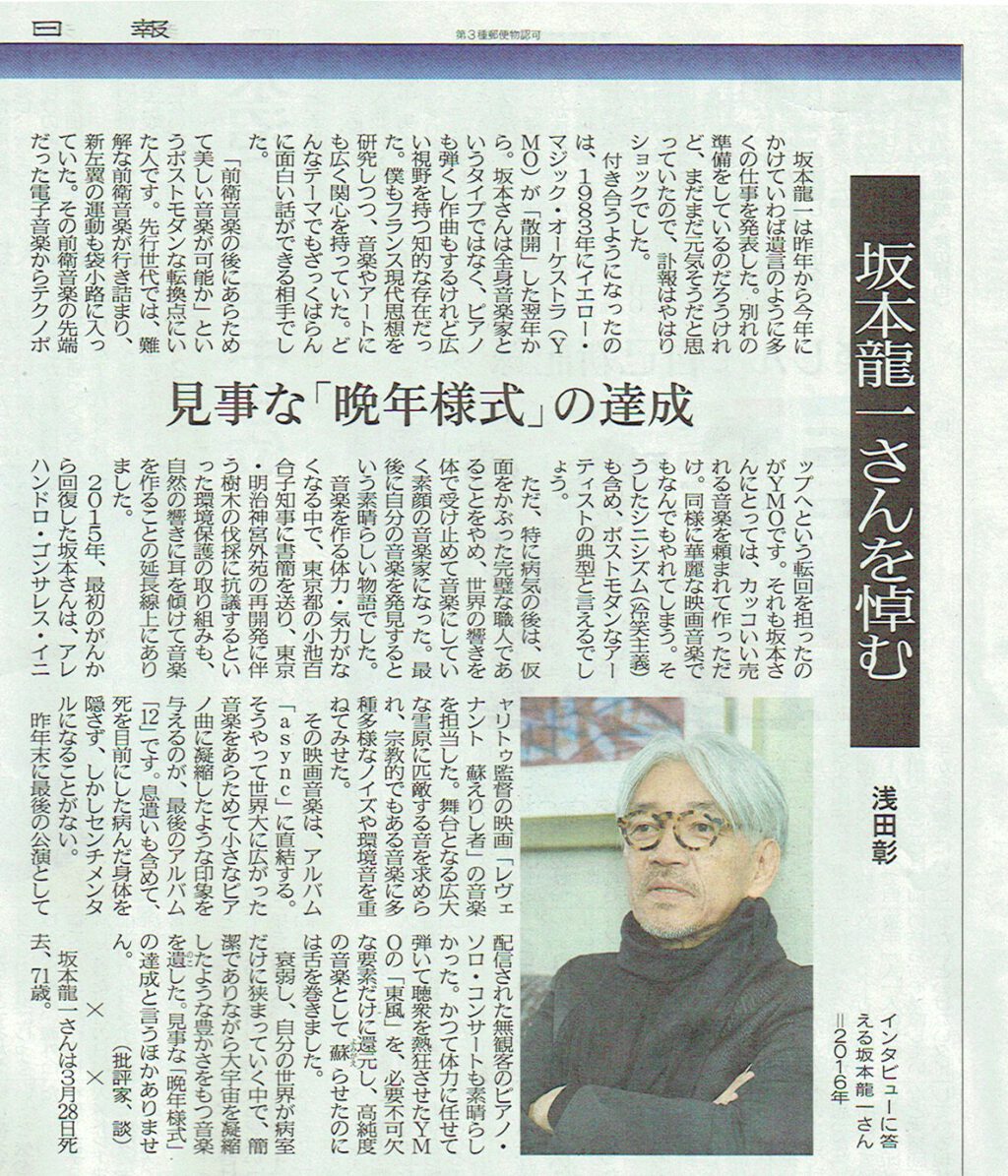
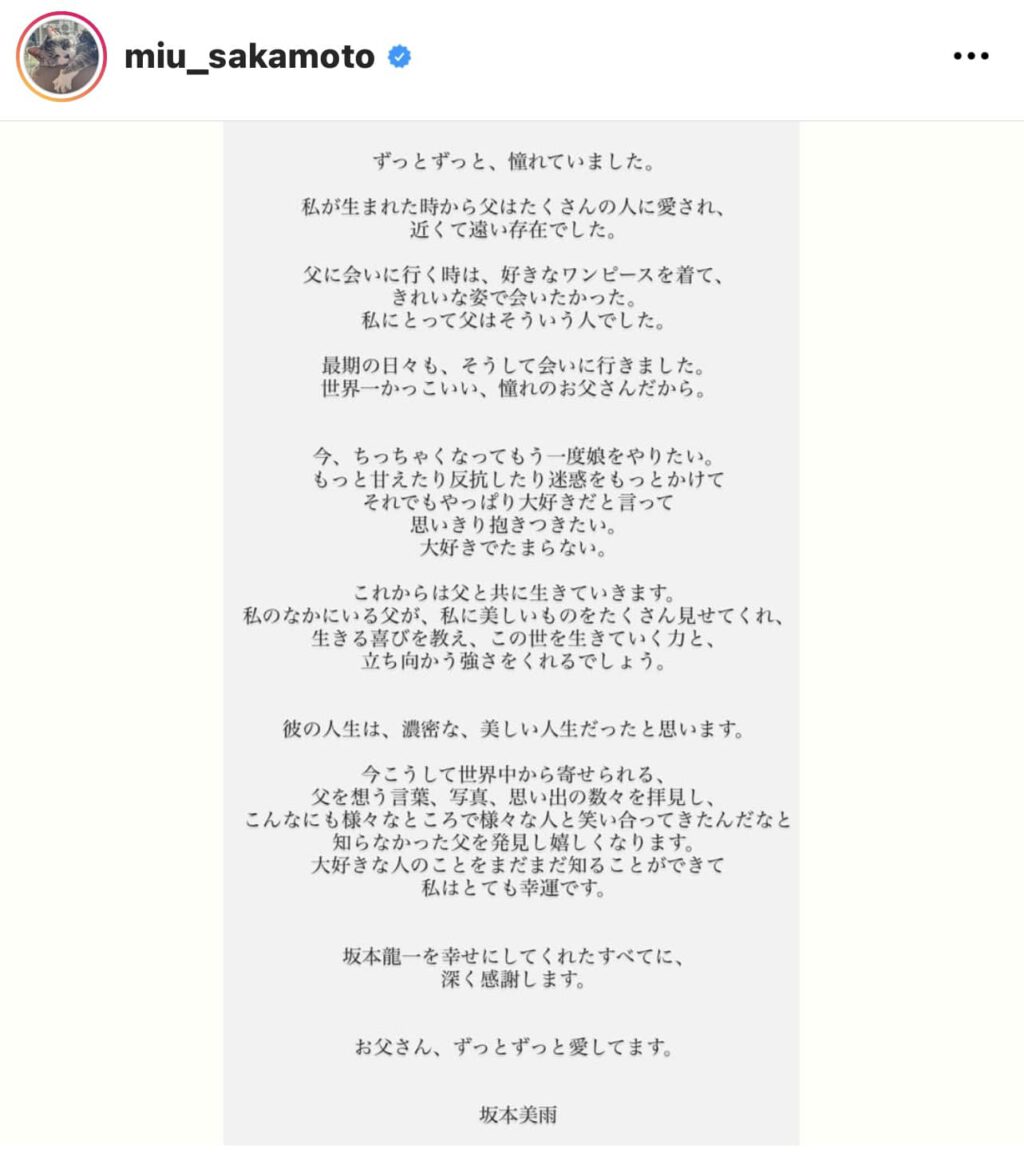
浅田彰が語る、完璧な演奏マシンから最後にヒトになった坂本龍一
Yellow Magic Orchestra – “Kimi Ni Mune Kyun“ (Official Music Video)
